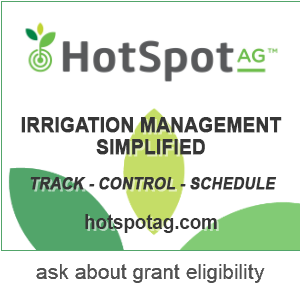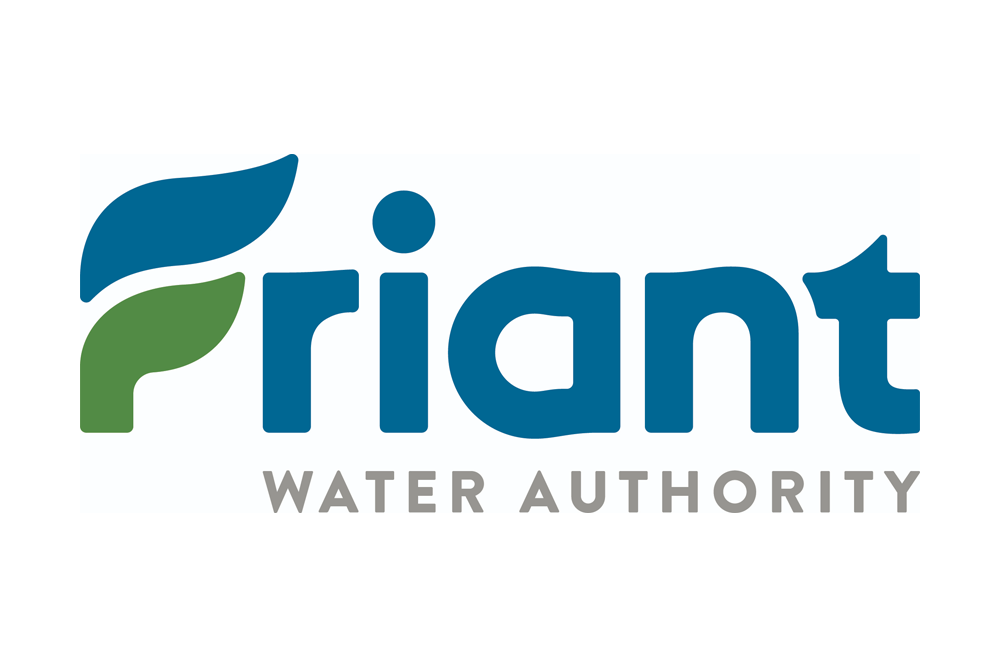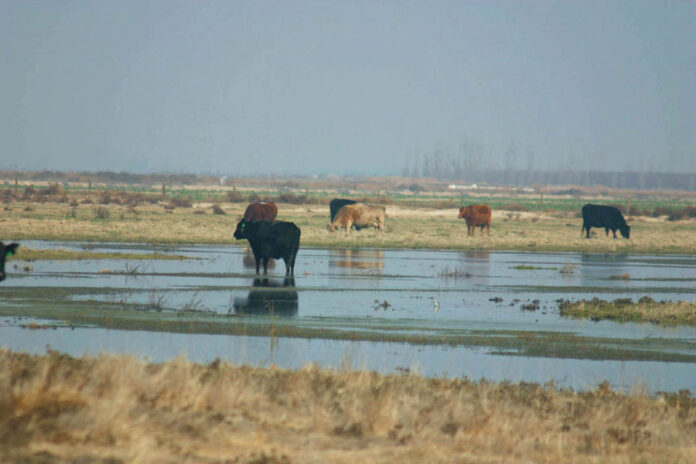The meeting of the Madera County GSA standing committee was called to order by Supervisor Leticia Gonzalez at 1:31 p.m. on August 5th in the board of supervisors meeting room in the county office building in Madera. Supervisor Robert Macaulay, the other committee member, was present along with staff and several members of the public. After the flag salute, public comment was invited on any matter not on the agenda or with a suggestion for a future agenda item. Michelle Lascoigty, local rancher, came forward to suggest an agenda item for next time, a review of the framework for the domestic well mitigation program.
Grower Survey
After approval of the minutes from the July 1st meeting, Aleta Allen, staff member in the county Department of Water and Natural Resources, gave an update on the status of the measurement methods and accounting platforms submitted in response to the RFP. She reviewed that the public presentation for potential vendors had occurred at the last meeting. Questions from growers had been collected in writing and submitted to the bidders and their responses had been posted online on July 21st. In response to a grower survey, there were 47 replies representing 37,000 acres. More replies continue to roll in, she said. Questions from growers covered issues such as quality control, data security, mobile apps, use by other GSAs, crops to be measured. Other questions touched on whether ET data could be integrated into a groundwater platform and the details that could be included.
measurement methods and accounting platforms submitted in response to the RFP. She reviewed that the public presentation for potential vendors had occurred at the last meeting. Questions from growers had been collected in writing and submitted to the bidders and their responses had been posted online on July 21st. In response to a grower survey, there were 47 replies representing 37,000 acres. More replies continue to roll in, she said. Questions from growers covered issues such as quality control, data security, mobile apps, use by other GSAs, crops to be measured. Other questions touched on whether ET data could be integrated into a groundwater platform and the details that could be included.
The staff had conducted reference checks with generally positive feedback on the two measurement systems saying they were familiar with ag and responsive to grower clients, Regarding the accounting platforms, again, generally positive references. These systems are newer and being refined and there are gaps between what is outlined and what is wanted. These are not “plug and play” systems.
Allen concluded pointing out the upcoming schedule to arrive at a decision. The GSA Committee will have a full presentation at the September meeting with a staff recommendation based on grower feedback. Assuming approval, there will be contract negotiations in October, consideration by the Committee and the Board of Directors in November with a target date to begin use of the new system effective January 1, 2026. Since this presentation was for information only, no action was taken.
With public comment invited, Noah Lopez of the Madera Ag Water Association spoke, saying this topic is of great interest to his members but not many could attend since harvest has begun. He said he wanted to review points that the members think are important. He said first that cost is a big factor and that it looks like up to $1 million has been the annual expenditure, so opportunities for savings should be explored. He said we should be looking for platforms that are widely used by other GSAs and trusted by growers and even by DWR. He said that flow meter data should be able to be integrated into the accounting platform. He said there still should be an opportunity to appeal satellite results with flow meter data. He said the accounting platform should be able to incorporate credits and transfers among growers. And finally, the system should be transferable to other vendors with the data belonging to the growers and the GSA. He concluded by thanking the county for this committee process.
MOU Proposed
With no other comment in person or online, the next item on the agenda was addressed by staffer Jacinta Cabral, a proposed MOU between the Valley Water Collaborative (VWC) and the 23 groundwater sustainability agencies in the Delta-Mendota Subbasin, regarding water quality testing for domestic wells and replacement water supplies. While the Madera GSA is one of them, there are no domestic wells in its area so there is no financial impact. In a slide presentation and referring to a printed handout, Cabral said that VWC is a non-profit organization addressing contaminants in drinking water in regions across the Central Valley. The purpose of the MOU is to avoid duplication of efforts and to share data from groundwater monitoring wells, testing of domestic wells, mitigation of dry wells and replacement of drinking water, as required in the revised GSP for the subbasin currently being considered by DWR. All the other GSAs have signed the MOU.
groundwater monitoring wells, testing of domestic wells, mitigation of dry wells and replacement of drinking water, as required in the revised GSP for the subbasin currently being considered by DWR. All the other GSAs have signed the MOU.
With public comment invited, local grower Ralph Pistoresi said he wanted to speak generally on domestic well mitigation (DWM). He said he had been looking at what the state requires. He said the state does not say that all white area farmers must pay for new wells. He said any policy should start with what’s right and what’s fair. He said the current GSA fee of $59 per acre is just giving money away with the expectation that there will be more. He said there should be standards on how people qualify for new wells and that white area farmers should be on any review committee. He said five to ten percent of the cost is for administration. He said we should be able to figure out how to reduce that since farmers will do that oversight work for free.
Supervisor Macaulay commented that DWR has provided a draft document on domestic well mitigation. The comment from staff was that this information would be sent to Mr. Pistoresi.
With no further discussion, the two supervisors voted to recommend the board sign the MOU.
Project Oversight
The final agenda item was the staff recommendation to amend a contract with Davids Engineering in an amount not to exceed $975,270.50 to provide engineering services for four projects on three recharge basins. The contract is to be completed by June 30, 2027 and will be funded by current grants.
Staff member Tukta Phetasa presented details of the three sites involved providing locations and specifications for each one. Supervisor Macaulay asked if there could be a more complete picture of where we are going and how these projects will be completed. Department Director Stephanie Anagnoson said she thinks the work can be done within existing budgets and timelines, with an end date for the contract in 2027.
Grower Mark Peters commented, saying this [recharge construction] is “wonderful stuff.” He said, “The permitting scares me but I know we’ll get through it.” (The contract identifies seven federal, state and regional entities that will need to approve the work.) He too asked for a more concise picture of the total benefit. The figure offered at the end of the meeting was a total capacity of 28,000 acre feet of recharge among the three basins when such flood waters are available. To conclude this agenda item, the supervisors acted to recommend approval of the contract.
To finish the meeting, Director Anagnoson said that the most recent of regular mailings had been sent to real estate professionals with details about the allocation system in place. She referenced a meeting about subsidence being put on by DWR in Clovis on September 9th. To avoid a conflict, it was suggested that the next committee meeting could be held on Tuesday, September 2nd, the day following the Labor Day holiday. She said at that meeting there will be more information presented about the domestic well mitigation program now in place in the Chowchilla Subbasin.
The meeting was adjourned at 2:08 p.m.
DISCLAIMER OF RESPONSIBILITY; Waterwrights strives to provide clients with the most complete, up-to-date, and accurate information available. Nevertheless, Waterwrights does not serve as a guarantor of the accuracy or completeness of the information provided, and specifically disclaims any and all responsibility for information that is not accurate, up-to-date, or complete. Waterwrights’ clients therefore rely on the accuracy, completeness and timeliness of information from Waterwrights entirely at their own risk. The opinions expressed in this report are those of the author and do not represent any advertisers or third parties.
ALL RIGHTS RESERVED. Copyright 2025 by WaterWrights.net
Madera County is comprised of three subbasins, designated by the CA Department of Water Resources as critically overdrafted, and “high priority”: (1) the Chowchilla Subbasin; (2) the Madera Subbasin; and (3) a portion of the Delta-Mendota Subbasin. Each of these subbasins submitted a Groundwater Sustainability Plan (GSP) by January 31, 2020. These subbasins are required to achieve “sustainability” by the year 2040. The method by which sustainability will be achieved will be illustrated in the GSP, which was be drafted in partnership by the irrigation district, water districts, cities and Madera County. The Madera County Groundwater Sustainability Agency (GSA) is administered by the Madera County Department of Water and Natural Resources: Stephanie Anagnoson, Director, 200 W. Fourth Street, Madera, CA 93637, (559) 675-7703 x. 2265 or (559) 675-6573. The County of Madera Board of Supervisors is the Board of Directors of the GSA for the three subbasins. The current board is composed of five members: Letitia Gonzalez, Robert Macaulay, Robert Poythress, David Rogers and Jordon Wamhoff..



































